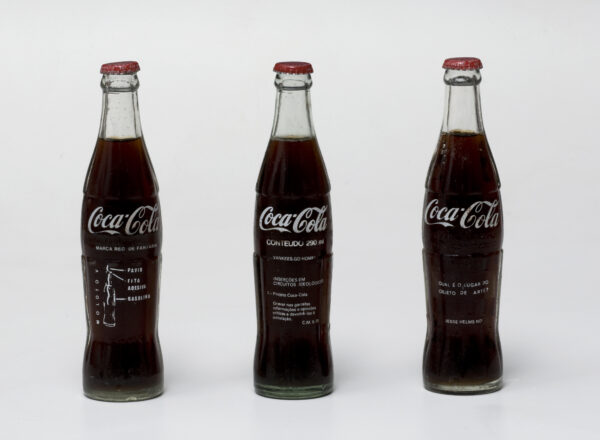


Cildo Meireles is one of the most influential conceptual artists of his generation. His complex installations and sculptures capture the viewer’s attention with their subtlety and invite them to question political, philosophical, and aesthetic precepts.
Meireles’ artistic practice was deeply influenced by the social and political conditions of Brazilian society under the country’s military dictatorship (1964-1985), and by the work of Concrete and Neo-Concrete artists like Lygia Clark (1920-1988) and Hélio Oiticica (1937-1980). During the 1970s and 1980s, the artist widely criticized American imperialism, Brazil’s military dictatorship, and the overlaps with North American capitalism.
Inserções em circuitos ideológicos. Projeto Coca-Cola is perhaps the most representative work of the early stage of his career. The piece—the first version of which was produced for a conceptual art exhibition at the Museum of Modern Art in New York in 1970 entitled Information—consists of glass bottles of Coca-Cola, one of the most emblematic and ubiquitous objects of capitalism. The artist added several subversive political messages to these, including the famous slogan “Yankees Go Home”.
Thanks to a special screen-printing process that printed a subtle white glaze, the text was only fully legible when the bottles were filled with the dark-coloured liquid. Meireles took advantage of the empty bottle return system, then widespread in Brazil, to divert the Coca-Cola bottle, this daily object of mass circulation, from its pre-established function, and to circumvent the censorship imposed by the military dictatorship. Inserções em circuitos ideológicos. Projeto Coca-Cola is therefore part of a series of works with which the artist explores the notions of circulation, and the exchange of goods, wealth, and information as manifestations of the dominant ideology.